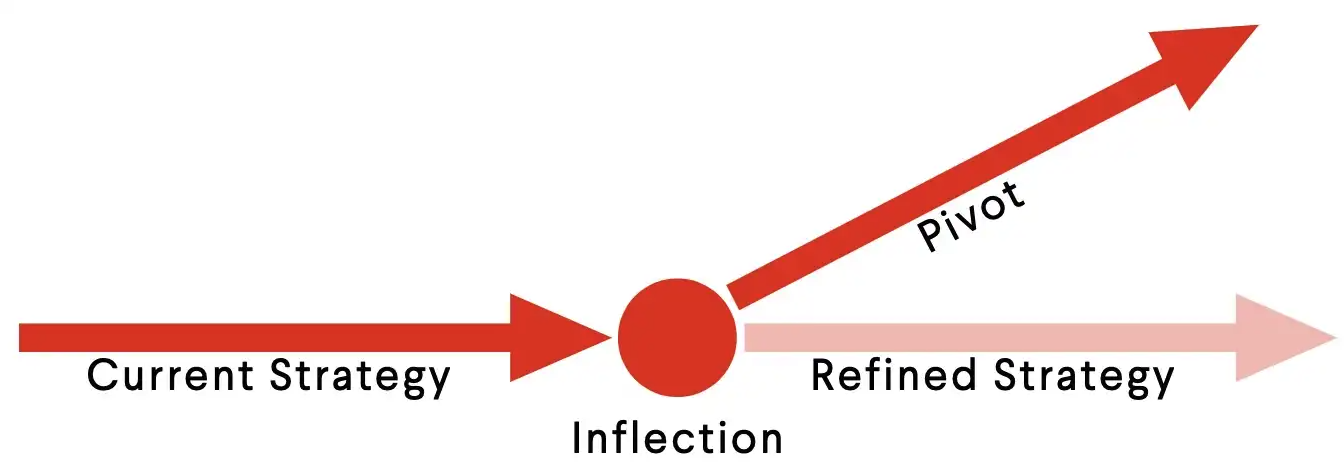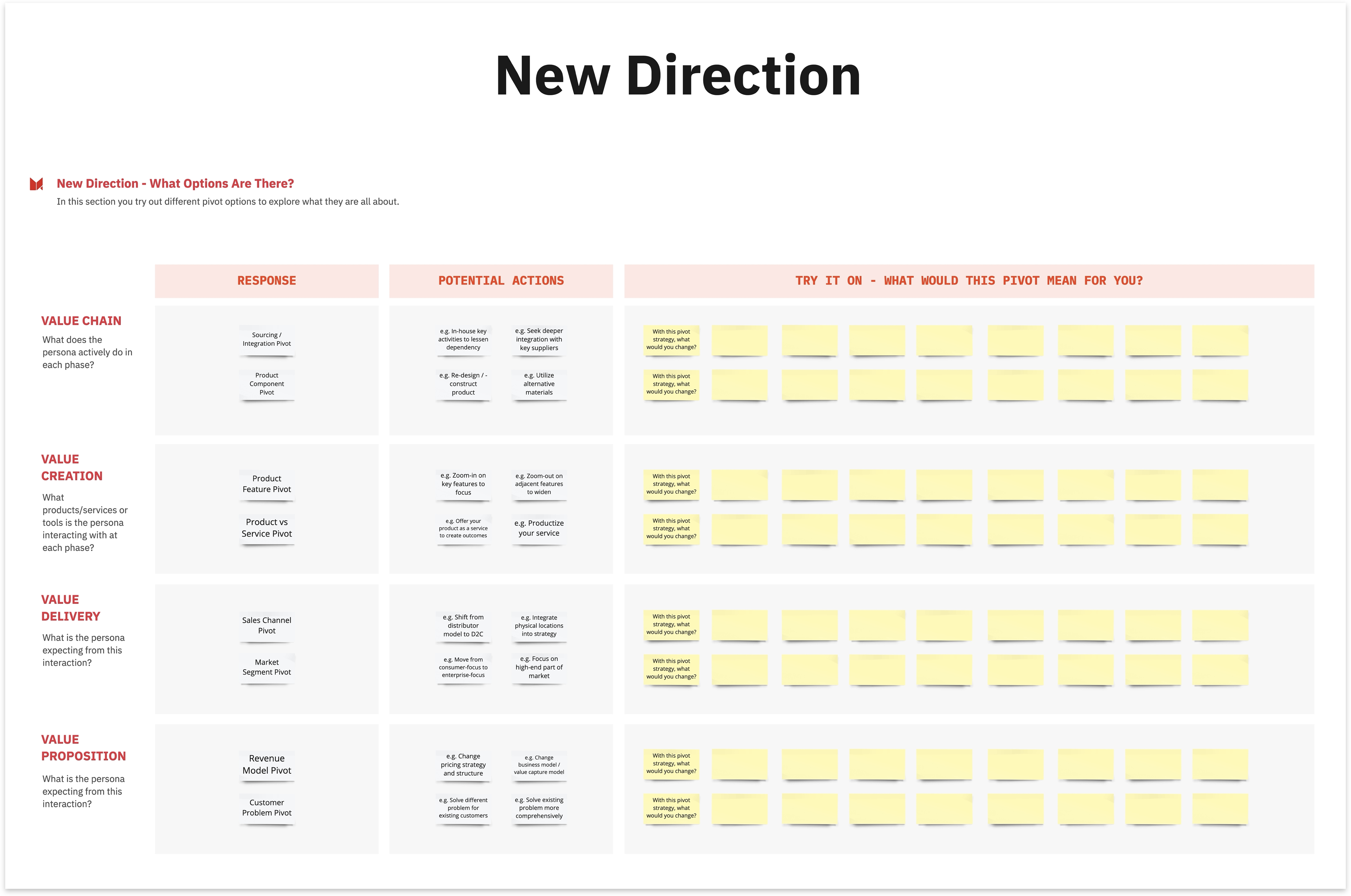¶ Pivot
¶ What it is
When we Pivot a concept or aspect of a concept, we change core strategic choices around the value chain, value creation, value delivery, or value proposition. Those are significant changes that require a re-validation of the pivoted concept, yet will be required when major Strategic Assumptions are wrong or “Make or Break” Assumptions need to be changed.
¶ Why it is useful
Pivoting is a core change in strategy, which is valuable and necessary when we learn that the old set of strategic choices will not work for the reality as we have learned it to be.
¶ When to use it
Whenever we learn from an experiment that a Strategic Assumption is wrong or that a “Make or Break” Assumption needs to be reformulated to be correct, then a Pivot of the aspects of these concerns might also be in order.

¶
¶ How is it done
- When an experiment conclusively tells you that an existing Strategic assumption is incorrect or that an existing “Make of Break” assumptions need to be changed to be entirely correct, review the aspects of the concept this relates to (Desirability / Feasibility / Viability) and the particular operational area of impact.
- Consider the impact of that new knowledge on the area it applies to and discuss as a team how you change your concept's strategic set of choices to make it work for the reality you have uncovered.
- You might run a Pivot workshop, which helps explore the various ways pivots can be done and which ones apply to your situation.
- Make the necessary change in the concept and review what impact this has on other parts of the concept. Modify the concept until it is fully coherent with the newly pivoted version.
¶ Do's & Don't
Do's
- Take the time to discuss the implications of your learning on all levels before making changes.
- After you conclude what needs to change, run a comprehensive pivot workshop that explores your options and choices.
- Leverage creative and selection exercises from Concepting to develop ideas and directions for larger concept Pivots.
Don't
- Don’t jump the gun on changing things quickly without deep reflection or impact analysis.
- Don’t forget to question whether you might have to run another round of Experimentation to get data on new choices based on assumptions you don’t yet comprehensively know to be true.
¶ Tools needed
- Whiteboard (physical or virtual)
- Post-it notes (physical or virtual)
- Concept Card
- Art of the Pivot workshop template (optional)
¶
¶ Example
